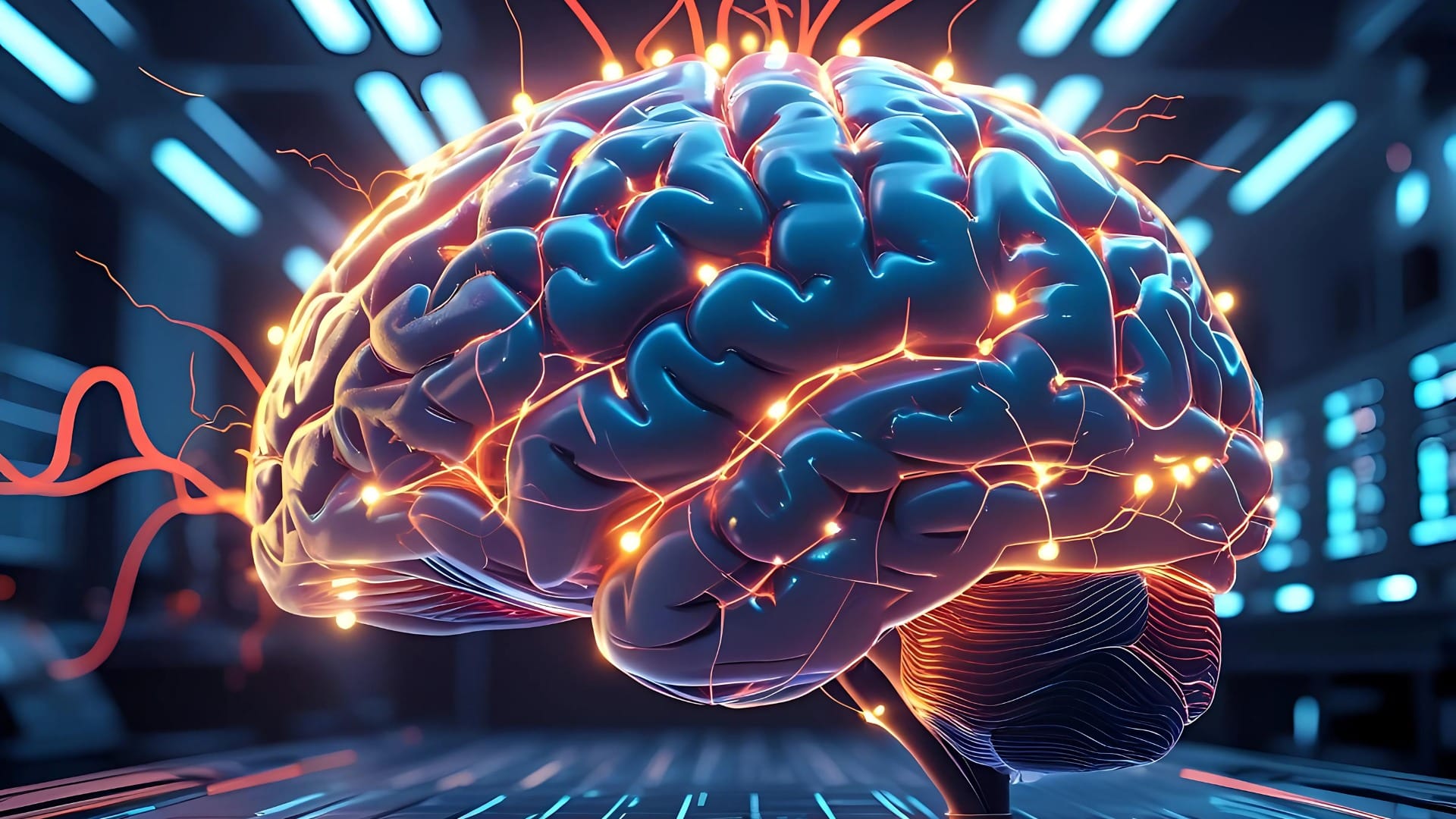The Chief Artificial Intelligence Officer (CAIO): The Trending Job Role in 2025-2026
The CAIO is not just a tech expert; they are a visionary, bridging the gap between AI research and real-world business applications.

Chapter 1: The Rise of the Chief Artificial Intelligence Officer (CAIO)
In the fast-paced digital landscape of the mid-2020s, artificial intelligence (AI) has moved beyond being just a buzzword. AI is now an essential part of business strategies, driving growth, innovation, and efficiency. With the increasing reliance on AI-powered technologies across industries, a new executive role has emerged—the Chief Artificial Intelligence Officer (CAIO).
The introduction of the CAIO role marks a significant shift in corporate leadership. As businesses recognize the potential of AI, they need leaders who not only understand the technology but can also integrate AI into the company’s overarching strategy. The CAIO is not just a tech expert; they are a visionary, bridging the gap between AI research and real-world business applications. This role has become one of the most sought-after in organizations that aim to lead the charge in the AI revolution.
Why the CAIO Role is Trending in 2025-2026
- The AI Revolution: By 2025, AI has permeated industries from healthcare to finance, manufacturing to entertainment. Companies are harnessing AI for tasks ranging from automating customer service to developing sophisticated algorithms for personalized marketing. The scale and complexity of AI initiatives require a dedicated leadership role to manage and expand their potential.
- Data Explosion: The exponential growth of data means AI plays a pivotal role in data analysis, making sense of vast amounts of information to guide business decisions. The CAIO leads this effort, ensuring the company leverages data efficiently and ethically.
- Innovation Leadership: In 2026, companies realize that adopting AI is not enough. Innovation must be continuous. The CAIO is responsible for steering innovation, identifying new AI applications, and ensuring the company stays ahead of competitors.
The Historical Context of CAIOs
The idea of having a dedicated AI officer evolved from the earlier trend of hiring Chief Technology Officers (CTOs) and Chief Data Officers (CDOs). While these roles focus on technology and data management, the CAIO’s focus is squarely on AI. This involves not only AI development but also understanding how AI intersects with every other department—from HR to marketing to operations.
Chapter 2: The Evolving Responsibilities of a CAIO
The role of the Chief Artificial Intelligence Officer is dynamic and multifaceted. In 2025-2026, as businesses across the globe integrate AI more deeply into their operations, the responsibilities of the CAIO continue to expand and evolve. This chapter explores the core duties of the CAIO, highlighting how the position transcends traditional boundaries to influence every aspect of an organization.
1. Setting the AI Vision and Strategy
The CAIO is the architect of a company’s AI strategy. This includes aligning AI initiatives with the company’s goals and ensuring that AI is leveraged to create a competitive advantage. Whether it’s improving operational efficiency or enhancing customer experiences, the CAIO must define how AI fits into the long-term vision of the company.
2. Driving AI Research and Development
A successful CAIO keeps the organization at the cutting edge of AI research. This involves staying updated on the latest advancements in machine learning, deep learning, and AI ethics. The CAIO collaborates with research teams to develop proprietary AI systems and ensure these solutions provide real value to the business.
3. Managing AI-Powered Transformation
The role of a CAIO is critical in overseeing AI-powered transformation projects. These projects could include automating internal processes, optimizing supply chains, or deploying AI-driven customer insights. The CAIO works with various departments to implement AI solutions, ensuring they are integrated smoothly and deliver measurable results.
4. Building and Leading AI Teams
A key responsibility of the CAIO is building teams of AI specialists, data scientists, machine learning engineers, and AI ethicists. The CAIO must lead these teams to success, fostering innovation while maintaining a focus on the company’s AI goals. Talent acquisition and development are essential, as the demand for skilled AI professionals will only increase.
5. Ensuring Ethical AI Deployment
In an era where AI is frequently in the spotlight for potential misuse, the CAIO is also tasked with ensuring that AI technologies are deployed ethically. This involves setting up guidelines for responsible AI, ensuring compliance with global regulations, and making sure that AI systems are transparent and fair.
Chapter 3: The Skills and Competencies of a Successful CAIO
The role of CAIO is not just for someone with technical know-how. It requires a blend of leadership, vision, and in-depth understanding of AI technologies. The ideal CAIO must possess a diverse set of skills that allow them to bridge the technical and strategic aspects of AI.
1. Deep Technical Expertise in AI
A CAIO must have extensive knowledge of AI technologies, including machine learning, neural networks, deep learning, and natural language processing. They must stay ahead of trends, understanding not only current AI capabilities but also the future of the technology. Technical proficiency in AI programming languages (Python, TensorFlow, etc.) and tools is vital.
2. Strategic Thinking and Business Acumen
While technical skills are essential, a CAIO must also be a strategic thinker. They should be able to align AI initiatives with business goals, translating complex AI technologies into actionable business solutions. Their vision should focus on long-term value, looking beyond immediate AI applications.
3. Leadership and Team Management
Leading AI teams is a crucial responsibility for a CAIO. This requires excellent leadership skills, an ability to motivate and inspire, and the expertise to manage interdisciplinary teams. The CAIO must build a collaborative environment where AI experts, data scientists, and engineers can thrive.
4. Ethical Judgment and Regulatory Knowledge
AI ethics is a growing concern in 2025-2026. The CAIO must have a strong grasp of AI ethics, including understanding biases in algorithms, privacy concerns, and the social implications of AI. They must also ensure that AI applications comply with national and international regulations regarding data protection and ethical usage.
5. Continuous Learning and Adaptability
AI is a rapidly evolving field. A successful CAIO must be committed to continuous learning, staying abreast of new AI technologies, frameworks, and ethical debates. Adaptability is critical, as the CAIO must pivot quickly when new trends and breakthroughs emerge.
Chapter 4: Challenges and Opportunities for CAIOs in the AI-Driven Future
The future is bright for the CAIO role, but it comes with its share of challenges. This chapter delves into the obstacles CAIOs might face and how they can turn them into opportunities.
1. Data Privacy and Security Issues
With AI systems heavily reliant on data, safeguarding this data becomes a top priority. CAIOs must ensure that data used for AI is secure and that privacy concerns are addressed. Data breaches, unethical data collection, or biases in AI algorithms can lead to reputational damage, making this a critical focus for the CAIO.
2. Navigating AI Regulations
As AI becomes more integrated into business operations, governments worldwide are introducing new regulations. CAIOs must navigate these rules, ensuring that the company’s AI initiatives remain compliant with local and global standards. This involves staying informed about regulatory changes and working with legal teams.
3. Managing Resistance to AI Adoption
Resistance to change is common, especially when it comes to integrating new technologies like AI. Employees may fear job displacement or struggle to adapt to AI-driven processes. The CAIO must manage these concerns through clear communication, training programs, and demonstrating how AI can enhance, rather than replace, human roles.
4. Expanding AI Use Cases Across Industries
While certain industries, like tech and finance, have been early adopters of AI, others, such as healthcare, agriculture, and manufacturing, are just beginning to explore AI's potential. CAIOs have the opportunity to pioneer AI in these sectors, developing innovative solutions that revolutionize traditional business models.
Chapter 5: The Strategic Importance of CAIOs for Business Transformation
In 2025-2026, businesses that fail to integrate AI risk being left behind. As such, the CAIO’s role becomes indispensable in ensuring the company remains competitive, innovative, and future-proof.
1. The CAIO as a Business Innovator
The CAIO drives innovation at every level of the organization. Whether it’s automating mundane tasks, creating personalized customer experiences, or pioneering new AI-driven products, the CAIO ensures that AI becomes a key differentiator for the company.
2. AI-Driven Decision Making
In the era of big data, decision-making is more complex than ever. The CAIO is responsible for leveraging AI to provide real-time insights that inform executive decisions. This data-driven approach allows businesses to react swiftly to market changes and customer demands.
3. Driving Global Competitiveness
AI is not just a local phenomenon; it’s global. CAIOs lead the charge in expanding businesses into new international markets, identifying opportunities for AI applications across different regions, and ensuring the company remains competitive on the global stage.
4. Preparing for the Future of Work
The CAIO plays a crucial role in preparing the workforce for AI’s future. This involves retraining employees, redefining job roles, and ensuring that human and AI collaboration becomes the norm. The CAIO must create a future-ready workforce where AI and human skills complement each other, allowing the business to thrive in the AI-driven world.
5. Partnering with External Stakeholders
As AI ecosystems grow, CAIOs must foster partnerships with external stakeholders, including AI research labs, tech companies, AI startups, and academic institutions. These collaborations can bring in cutting-edge innovations and allow the company to stay ahead of technological trends. Additionally, CAIOs can play a key role in developing AI-focused joint ventures or partnerships, expanding the company’s influence in the AI space.
6. Fostering a Culture of AI Innovation
A major challenge for many companies is fostering an internal culture that embraces AI. The CAIO is instrumental in promoting a mindset of continuous learning and innovation across all departments. Through training, workshops, and leadership initiatives, the CAIO ensures that AI is not seen as an external tool but as an integral part of the company’s DNA. By encouraging experimentation with AI and highlighting its successes, CAIOs help create a culture where AI innovation thrives.
7. Scaling AI Across the Enterprise
Once AI initiatives are successfully piloted, scaling them across an enterprise is often the next step, and this can be a complex process. The CAIO is responsible for ensuring AI solutions can be scaled efficiently without causing disruption. This includes developing repeatable AI models that can be deployed in different departments, standardizing AI tools across business units, and creating robust AI governance frameworks to manage the growth of AI capabilities within the organization.
Conclusion: The Future Belongs to the CAIO
As we move into 2025-2026, the role of the Chief Artificial Intelligence Officer will become indispensable in navigating the rapidly evolving business landscape. The CAIO is the driving force behind AI initiatives that transform organizations, making them more agile, data-driven, and future-ready. Companies that embrace this role and invest in the right leadership will gain a competitive edge, unlocking the full potential of artificial intelligence.
For ambitious professionals looking to step into leadership roles, becoming a CAIO represents an exciting career opportunity. The position offers a unique blend of technical expertise and strategic influence, allowing individuals to shape the future of their companies and industries. As AI continues to revolutionize the business world, the Chief Artificial Intelligence Officer will be at the forefront of that change, steering companies toward greater innovation, success, and sustainability in the AI age.




